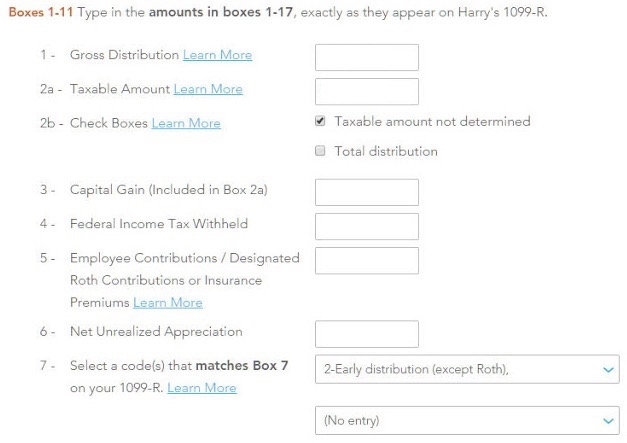Table of Content
Whether a 401k loan is better than an IRA withdrawal depends on how large it is and whether it will affect your ability to qualify for the amount and type of mortgage you want. Of course, you’ll still have to pay federal and state income tax on the amount you withdraw from your traditional IRA. ❌ You may pay a penalty.401 withdrawals are automatically docked a 10% penalty. The IRS has very strict rules for qualifying for a hardship withdrawal. And if you don’t meet them, the funds you withdraw will be subject to income tax and a 10% early withdrawal penalty. Typically when you withdraw funds from a 401 before age 59½, you incur a 10% penalty.
Additionally, the 401 tends to grow at a certain rate that depends on the investment portfolio in the account. An average growth rate of a market portfolio grows by 7% annually. As an example of an early withdrawal penalty, suppose you need to withdraw $50,000 to cover the down payment. Because of the 10% penalty, the 401 balance will decrease by $55,000. Additionally, the $50,000 that has been withdrawn will be subject to income tax, so the owner of the account will have to also pay income taxes on these $50,000.
Pros and Cons of Using a 401(k) to Buy a House
While this may seem like an easy way to access funds, it’s not always the best option for buyers. Exploring alternative methods may be more beneficial in the long run. • Certain mortgage lenders provide financial assistance by offering credits to cover all or some of the closing costs and down payment. • USDA loans are a type of home buyer assistance program offered by the U.S.

The government does this because you have to repay yourself, so you are still saving for your retirement. So, while it is possible to tap your 401 in lieu of a mortgage loan, it would end up being a very expensive source of funds, not to mention being disruptive to your retirement savings. Most plans will allow you to take money out of your 401 for what’s called a hardship withdrawal. But for some plans, putting a down payment on a house doesn’t qualify as a hardship.
FHA Mortgages
You’ll enjoy the benefits of homeownership now and can look forward to paying off or selling your home to get ready for your retirement plan. While this option may be less costly than taking out a withdrawal, the interest on your loan repayment will have a cost. Information, rates and programs are subject to change without notice.

• You can only withdraw enough to cover the immediate expense , with a limit of 50% of the vested balance or $50,000 — whichever is less. Meet our panel of SoFi Members who provide invaluable feedback across all our products and services. Assuming a conservative annual return rate of 4%, that $10,000 will be $33,731 by the time you turn 66. In 31 years, that money more than tripled, earning you $23,731 just by sitting in your 401.
Downside of Using Your 401(k) to Buy a House
As mentioned above, this is the less desirable of the two options. Before diving into whether you should use your 401 to buy a house, it’s important to first have a firm grasp on how, exactly, a 401 retirement account works. Once you have a better idea of how much you need to save, it’s time to take advantage of automation.The goal of automation is to take the challenge out of saving. After all, the hardest part is consistently making the choice to put funds away. However, building savings that aren’t automatically taken out of your paycheck is often a bigger challenge.
These folks are part of our Endorsed Local Providers program, so they’re experts in your local market and can help you find the house that suits your family’s needs and budget. And since they’re RamseyTrusted, you can feel confident they’ll serve you the Ramsey way. The only time (italicized—so you know it’s important) it’s okay to consider taking money out of your 401 early is to avoid bankruptcy or foreclosure. Whatever you decide, make sure you consult with a mortgage specialist before committing to an option.
For costs related to the purchase of a principal residence or for tuition for the next year, you’d have to produce the bills. In the case of the natural disaster, you’d have to document the event and the costs to repair the damage to your principal residence. Be sure to research all available options before you withdraw any funds from your retirement account. That way, you’ll keep yourself on the path toward enjoying your golden years in your very own home. You can typically borrow up to half of the vested balance of your 401k, or a maximum of $50,000. Most 401k loans must be repaid within five years, although some employers will allow you to repay a 401k loan over 15 years if it’s used for purchasing a home.
That means that withdrawals are generally only allowed by the IRS after you turn 59 ½, or before 55 if you’ve left or lost your job. Statistically, very few people actually use their 401 to buy a house. If you have an IRA, you should look there for extra funds before considering an early withdrawal from your 401. IRAs are built with special provisions for first-time home buyers, which the IRS defines as anyone who hasn’t owned a primary residence within the previous 2 years. USDA loans allow buyers of modest means to purchase homes in less-dense parts of the country with no money down.
However, you can’t roll over a 401k that’s with an employer for whom you are still working. If you have an old 401k from a former employer, roll that. Since a rollover can take time to process, fill out the necessary paperwork as soon as possible.
For instance, your employer may require extra documentation for you to make a case for the withdrawal. Banks and other lenders will give you a personal loan if your creditworthiness is high. However, this will add to your Debt-to-Income ratio, which may affect your mortgage conditions and eligibility.
If you take money out of your 401 before you’re 59 1/2, you’ll be hit with a 10% early withdrawal penalty. There are exceptions, but they’re very specific (death, permanent disability, dividing assets after divorce, etc.)—and buying a house ain’t one of them.3 That stinks. There are good reasons for not using your 401 to buy a house. Even if you’re comfortable with the 10% early withdrawal penalty, you will still be incurring long-term consequences by reducing your savings. Withdrawing or borrowing from your 401k is one way first-time home buyers can secure funding for down payments.

And the IRS rules don’t find a situation a hardship if you have other ways of paying for the expense, like money from a spouse or child.2 It all depends on your employer’s 401 rules. A Federal Housing Administration loan is a government-backed mortgage with looser requirements designed to make it easier for first-time home buyers to purchase a property. This includes low down-payment options and lower credit score requirements. For this reason, an FHA loan may be a better option than making a withdrawal from your 401. However, If you need to take a distribution from retirement savings, consider all of your options, including taking withdrawals from an IRA or delaying homebuying to save more cash. To use money in a traditional 401, you can take an outright withdrawal or a 401 loan.

No comments:
Post a Comment